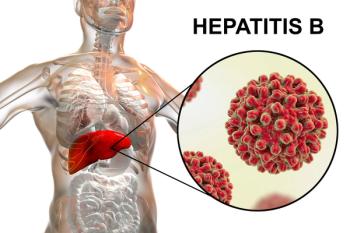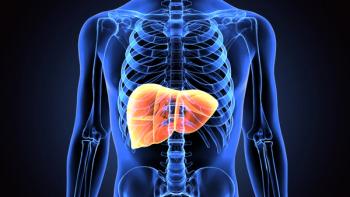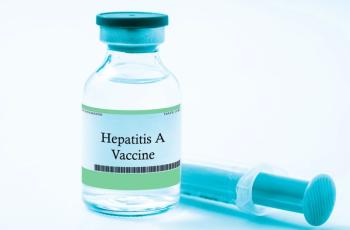
Positive Results for Resmetirom for Nonalcoholic Fatty Liver Disease
The FDA has set March 24, 2024, as PDUFA date for the drug.
Patients with nonalcoholic fatty liver disease (NAFLD) and presumed nonalcoholic steatohepatitis (NASH) met key primary and secondary endpoints in a 52-week phase 3 safety and tolerability study of
The MAESTRO-NAFLD-1 trial was a phase 3 trial that evaluated the safety and effectiveness of the investigational therapy, resmetirom, in adults with NAFLD, including those with NASH. The primary endpoint of the trial was the occurrence of treatment-emergent adverse events (TEAEs) over 52 weeks. Defined secondary endpoints included reductions in low-density lipoprotein-C (LDL-C), apolipoprotein B (apoB), triglycerides, hepatic fat and liver stiffness so as to better characterize the perceived clinical benefits.
NAFLD is a liver disease that is commonly found in individuals with obesity, type 2 diabetes, and dyslipidemia. It is characterized by the accumulation of fat in the liver and can progress to a more severe form called NASH, which is associated with liver inflammation and fibrosis. Currently, there is no approved treatment for NASH.
FDA has granted priority review of resmetirom and the manufacturer, Madrigal Pharmaceuticals, filed an
Related:
The MAESTRO-NAFLD-1 trial was conducted at 80 sites in the U.S. between Dec. 16, 2019, and Dec. 13, 2021. A total of 1,988 patients were screened, and 1,143 patients were randomized to the trial. Of these, 972 patients were included in the three double-blind arms, and 171 patients were included in the open-label arm.
The safety population consisted of 969 patients in the double-blind arm groups and 171 patients in the open-label treatment. Patients in the double-blind arms were randomized to different doses (100 mg or 80 mg) of resmetirom or a placebo, while patients in the open-label arm received resmetirom 100 mg.
The study found that resmetirom was safe and well tolerated by the patients, although treatment emergency adverse events (TEAEs), such as diarrhea and nausea, being more common in the resmetirom groups compared to the placebo group, particularly in the first 12 weeks of treatment. The incidence of TEAEs was similar between the resmetirom and placebo groups, with the majority of TEAEs being mild or moderate in severity. The rate of discontinuation due to TEAEs was, though, slightly higher in the resmetirom arms compared to the placebo.
Key secondary endpoints showed favorable effects of resmetirom on atherogenic lipid levels, hepatic fat, and liver stiffness. Resmetirom treatment resulted in significant reductions in "bad" low-density lipoprotein cholesterol, apoB and triglyceride levels compared with placebo. It also led to reductions in hepatic fat at both week 16 and week 52, as measured by magnetic resonance imaging-proton density fat fraction and FibroScan controlled attenuation parameter. Improvements in liver stiffness were also observed for a percentage of patients.
The study also found that patients with weight loss combined with resmetirom treatment or high exposure to resmetirom had greater reductions in hepatic fat.
Harrison and colleagues reported no significant difference in mean change from baseline in liver stiffness measurement between resmetirom and placebo at week 52, but responder analysis indicated a higher percentage of patients in the resmetirom arms achieving certain reduction criteria. Resmetirom treatment also improved markers of liver injury, particularly in patients with elevated baseline
Overall, the findings of this phase 3 trial suggest that resmetirom may be a promising treatment option for nonalcoholic fatty liver disease given the encouraging safety and tolerability results. It showed favorable effects on atherogenic lipid levels, hepatic fat, and liver stiffness. These findings suggest that resmetirom may be a potential treatment option for NASH and provide additional clinical evidence in favor of FDA approval.
Newsletter
Get the latest industry news, event updates, and more from Managed healthcare Executive.























